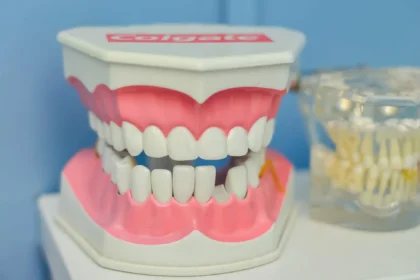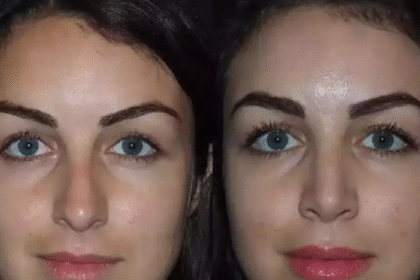Your dental check-up is more than just a quick look at your teeth. It’s a valuable chance to understand your oral health and prevent future issues. Asking the right questions during your visit to a Macquarie Street Sydney dentist can help you make better choices for your smile and well-being.
In this guide, we’ll share the most helpful questions to ask and explain why they matter.
Why Ask Questions at the Dentist?
Many patients sit in the dental chair quietly, assuming their role is simply to follow instructions. But asking questions during your dental visits is one of the best ways to take an active role in your oral health. Engaging with your dentist not only builds trust but also helps tailor your care to your unique needs and lifestyle. Open communication leads to a better understanding of your treatment plan, improved long-term results, and increased confidence in your decisions.
By taking just a few moments to ask the right questions, you’ll walk away with valuable insights about:
-
Your current oral health status
-
How to prevent common dental issues
-
What treatments are necessary or optional
-
The costs, timelines, and expectations for future care
Being informed empowers you to make smart, proactive choices about your dental health.
Smart Questions to Ask Your Dentist
To get the most out of your dental appointment, try asking these practical questions:
1. How healthy are my teeth and gums?
Start with the basics. This simple question helps you understand your current oral health. Your dentist can point out areas of concern like early gum inflammation, enamel erosion, or plaque buildup. Even if everything looks good, you’ll get confirmation that your current routine is working.
2. Am I brushing and flossing correctly?
Most people brush daily, but many don’t do it effectively. Your dentist or hygienist can evaluate your technique and offer tips to improve it. They may suggest using less pressure, focusing on hard-to-reach areas, or switching up your routine to include floss picks or interdental brushes.
3. Are there any areas I should watch?
Dental issues often start small—an area where plaque collects, a spot with early decay, or slight gum irritation. Asking this question helps you monitor those spots at home and follow specific care instructions to prevent them from getting worse.
4. What type of toothbrush or toothpaste do you recommend?
Not all dental products are created equal. Your dentist may suggest a soft-bristled electric toothbrush, a toothpaste with extra fluoride, or a specific product designed for sensitivity, whitening, or gum care. Recommendations are based on your personal needs, not general marketing claims.
5. Is there anything I should change in my diet?
Food and drink have a major impact on oral health. Frequent snacking, sugary drinks, and acidic foods can lead to cavities and weakened enamel. Your dentist can suggest simple changes—like drinking more water, limiting acidic foods, or chewing sugar-free gum—that protect your smile long-term.
6. Do I need any X-rays during this visit?
X-rays help detect problems that aren’t visible to the naked eye, such as hidden decay, bone loss, or infections. While not needed at every visit, periodic X-rays are essential for full diagnosis. Asking this question helps you understand when they’re truly necessary and why.
7. What are my treatment options if something needs fixing?
If your dentist identifies a problem, it’s important to understand all available treatment options. Ask about the pros and cons of each, the cost, recovery time, and expected outcomes. In many cases, there may be more than one solution, and you deserve to choose what fits your budget and goals.
8. How often should I schedule future appointments?
The typical recommendation is every six months—but that’s not a one-size-fits-all rule. If you’re prone to gum disease, have multiple fillings or crowns, or are undergoing orthodontic treatment, you may need to visit more frequently. Your dentist will provide a personalised schedule based on your individual risk level.
Why These Questions Matter
Your oral health plays a key role in your overall health. Issues like gum disease have been linked to heart disease, diabetes, and other systemic conditions. The more you understand about your dental health, the more likely you are to take preventive actions and avoid painful or costly complications.
Asking questions turns a routine appointment into a valuable conversation. It ensures your care is truly tailored to you—not just a checklist of generic procedures. It also strengthens the relationship between you and your dentist, making it easier to speak up about concerns or preferences in the future.
Takeaway
Never be afraid to ask questions at the dentist. Your dental care is a partnership, and communication is key. Whether it’s about brushing techniques, treatment options, or the best way to protect your teeth between visits, your dentist is there to help guide you.
The more you ask, the more you learn—and the better your chances of maintaining a healthy, confident smile for life.
How a Macquarie Street Sydney Dentist Can Help
Choosing a central and experienced Macquarie Street Sydney dentist means you can easily fit quality dental appointments into your day. Many professionals in this location offer comprehensive care and up-to-date treatments, right near your work or transport.
It’s the ideal solution if you’re searching for a reliable “dentist near me” in the heart of Sydney.
Be Proactive About Your Smile
Asking your dentist the right questions helps you stay informed, confident, and protected. No concern is too small, and good dentists welcome your interest in your health. Start with a few questions at your next visit and build a partnership that supports lasting oral wellness.
FAQs
- What should I bring to my dental appointment?
Bring your ID, any dental history records, a list of medications, and your health insurance details.
- Can I ask about cosmetic treatments during a check-up?
Yes, your dentist can explain options like whitening, veneers, or orthodontics during a regular visit.
- Is it okay to get a second opinion from another dentist?
Absolutely. It’s your right to explore different perspectives for comfort and clarity.




